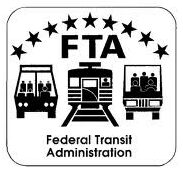

“With the more rigorous and effective state safety oversight required by this final rule and federal law, transit systems across the nation will receive greater safety oversight with the aim of improving safety for passengers and transit system employees,” said U.S. Transportation Secretary Anthony Foxx “Greater investigatory and enforcement power combined with better training will give state safety oversight watchdogs sharper teeth to help rail transit agencies keep their systems safe.”
The final rule will officially be published in the Federal Register on March 16, 2016, and will take effect 30 days after publication. It applies to States where a rail transit system operates, and carries out several explicit Federal statutory requirements, including that a State must submit its State Safety Oversight (SSO) program to FTA for certification and that the designated SSO Agency must have financial and legal independence from the rail transit agencies it oversees.
In addition, the final rule requires that a State must ensure that the SSO Agency adopts and enforces relevant Federal and state safety laws, has investigatory authority, and has appropriate financial and human resources for the number, size and complexity of the rail transit systems within its jurisdiction. Furthermore, SSO Agency personnel responsible for performing safety oversight activities must have proper training and certification.
“FTA has delivered exactly what Congress authorized: a stronger, more robust state safety oversight program with increased enforcement tools,” said FTA Acting Administrator Therese McMillan. “States should act swiftly to come into compliance to provide a higher level of safety for their rail transit system riders and workers.”
Within three years of the effective date of this final rule, States with an operating rail transit system must have a SSO program certified by FTA. FTA has already certified two of the affected 30 States as being compliant: California and Massachusetts. Most of the remaining 28 States have also already taken some actions toward compliance with these critical safety requirements.
To assist in this effort, Congress has authorized a stable source of funds to the States for their use in meeting these new safety oversight obligations. The existing Federal SSO program regulations will remain in effect during the transition period and then be rescinded.
If a State is non-compliant after the three-year period, FTA may withhold Federal funds until its SSO program is certified. If a State fails to establish an SSO program, FTA is prohibited by law from obligating any Federal financial assistance to any entity in that state otherwise eligible to receive FTA program funding.
Strengthening the existing State Safety Oversight Program is one of four components of a comprehensive public transportation safety program Congress required FTA to establish in the Moving Ahead for Progress in the 21st Century (MAP-21) Act in 2012 and reauthorized in the Fixing America’s Surface Transportation (FAST) Act in 2015.
FTA is actively moving forward on the other three components as well. Interim provisions for the Public Transportation Safety Certification Training Program have been in effect since May 2015 and FTA is now reviewing comments received on the proposed rule which would make the interim provisions permanent. The National Public Transportation Safety Plan and the Public Transportation Agency Safety Plan were both recently released and comments will be accepted through April 5, 2016. All four, plus other related rulemaking actions, will collectively establish the regulatory framework needed to implement and strengthen new and existing FTA safety oversight and enforcement authorities.
Related News
- Razor blade found on brake wheel
- Coming Soon: SMART-TD Voluntary Income & Life Protection (VILP) Program
- Senate Passes Tax Bill Without Including Railroaders
- SMART-TD Honors the Retirement of Brother Greg Hynes: A Visionary, a Fighter, and a Legend
- SMART-TD Calls on U.S. Senate to Support the Cantwell Amendment and Protect Rail Workers
- Yardmaster Protection Act Introduced
- PHOTO GALLERY: 2025 Denver Regional Training Seminar
- Fighting for Stronger Heat Protections for Rail Workers
- Regional Training Seminar Sets (Mile-High) Record in Denver
- Registration Open for Anaheim Regional Training Seminar